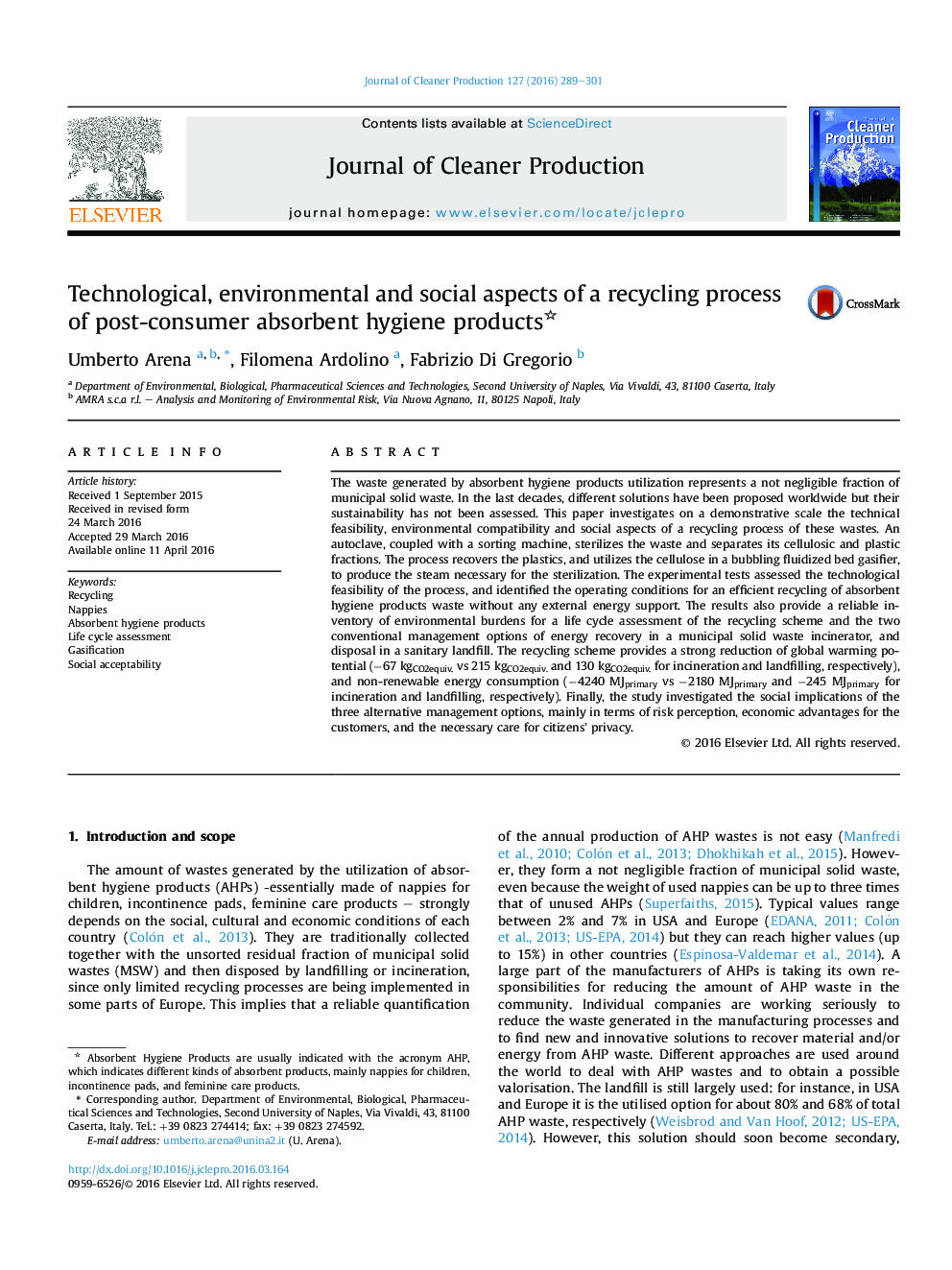| Article ID | Journal | Published Year | Pages | File Type |
|---|---|---|---|---|
| 1744087 | Journal of Cleaner Production | 2016 | 13 Pages |
•Absorbent hygiene products waste represents between 2% and 7% of MSW in Europe.•The life cycle sustainability of an innovative recycling system was assessed.•Techno-environmental and social aspects of the recycling system were considered.•Experimental data were obtained from a demonstrative scale recycling plant.•The recycling scheme was compared to traditional management options by LCA.
The waste generated by absorbent hygiene products utilization represents a not negligible fraction of municipal solid waste. In the last decades, different solutions have been proposed worldwide but their sustainability has not been assessed. This paper investigates on a demonstrative scale the technical feasibility, environmental compatibility and social aspects of a recycling process of these wastes. An autoclave, coupled with a sorting machine, sterilizes the waste and separates its cellulosic and plastic fractions. The process recovers the plastics, and utilizes the cellulose in a bubbling fluidized bed gasifier, to produce the steam necessary for the sterilization. The experimental tests assessed the technological feasibility of the process, and identified the operating conditions for an efficient recycling of absorbent hygiene products waste without any external energy support. The results also provide a reliable inventory of environmental burdens for a life cycle assessment of the recycling scheme and the two conventional management options of energy recovery in a municipal solid waste incinerator, and disposal in a sanitary landfill. The recycling scheme provides a strong reduction of global warming potential (−67 kgCO2equiv. vs 215 kgCO2equiv. and 130 kgCO2equiv. for incineration and landfilling, respectively), and non-renewable energy consumption (−4240 MJprimary vs −2180 MJprimary and −245 MJprimary for incineration and landfilling, respectively). Finally, the study investigated the social implications of the three alternative management options, mainly in terms of risk perception, economic advantages for the customers, and the necessary care for citizens' privacy.
